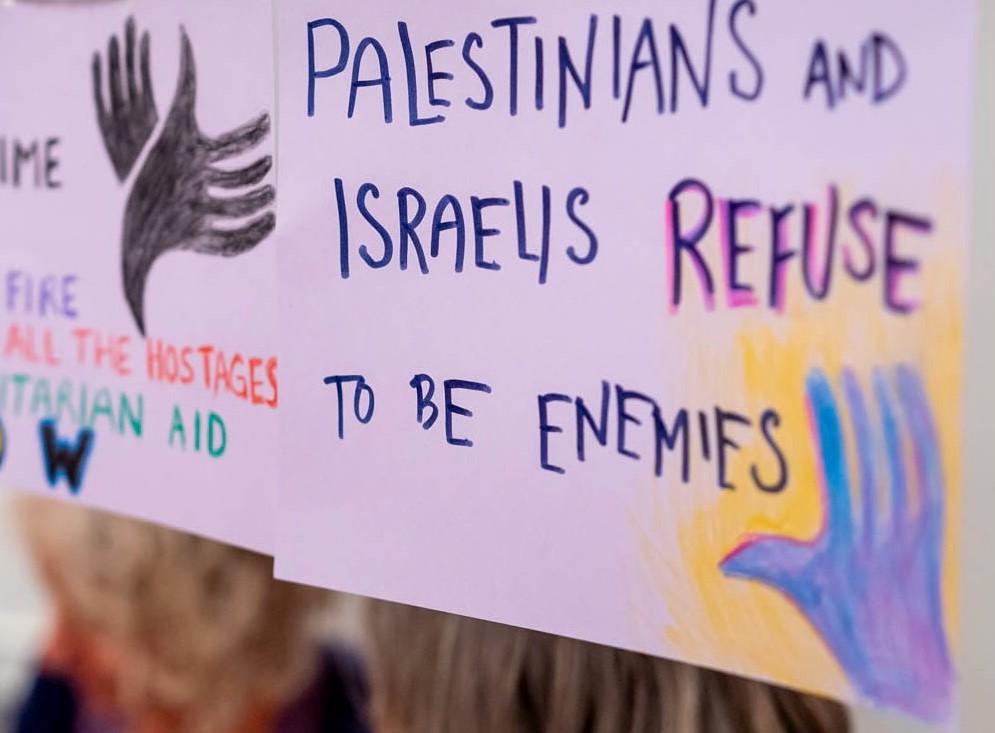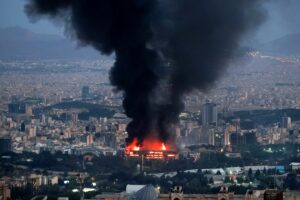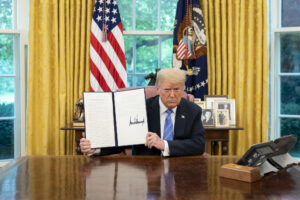“What then?”, I asked him. Do you want to kill them all? My terrace neighbour turned pale: “No! I don’t want to kill anyone,” he said, offended, even though he had just explained to me, full of remorse, without any hatred, that Israel could not stop bombing Gaza because Hamas had to be eradicated before it could regain power and restart the cycle of wars.
In fact, he was at a loss. What he wanted was to see as many Gazans as possible leave of their own accord, to Egypt, Europe, the Gulf, anywhere, but not to stay, since “they had all applauded October 7th, they all sang and danced with joy.” “Look at the photos, what can we do with these people?”, he asked. He ended up saying “with these animals” but he quickly regretted this word. It made him feel ashamed, but he knew that the Gazans would stay in Gaza, and this fact left him completely stunned, as it does almost all Israelis except those who belong to the nationalist-religious extreme right.
To the right of Benjamin Netanyahu, everything is simple. Some 10% of Gazans should leave, they say, “it’s possible”, to Latin America for example, and settlers should come and rebuild the farms destroyed after Israel’s withdrawal 20 years ago, with the remaining Gazans working there “for the common good”. Really? Do you believe what you are saying? Yes, absolutely, they believe it, because “Arabs only understand force, and if we don’t give in, peace will return as it did after 1967”, the Six-Day War, the Arab defeat and the occupation of the Palestinian territories.
The only thing that shakes the convictions of the nationalist-religious is the name Trump. Even before it was known that the American president was going to meet with the Palestinian, Lebanese and Syrian presidents in Riyadh, the Israeli far right was already worried that the White House would want to sign a compromise with Iran behind the Israelis’ backs, after having concluded one with the Houthis.
Whatever the far right may say, doubt is also spreading among their ranks. On the other side of the political spectrum, in the centre, on the left and in the centre-right, there is still deep confusion. A former head of internal intelligence and long-time supporter of the two-state solution, Admiral Ayalon does not believe that this coalition of the hard and extreme right can last until the elections in October 2026. Like many, he believes that Netanyahu will not be able to arbitrate between his own voters and the national-religious on the issue of military service exemptions for the ultra-Orthodox. This will tear the right apart, he says, but he is not confident in the opposition’s ability to take over.
Here too, he is not alone, because Israeli democrats, all those who want to defend democracy and stop the bombings and restart peace negotiations with the Palestinians, suffer from a double affliction. On one hand, they are prone to the same political wear and tear as all left-wingers around the world. On the other, they are unable to convince a solid majority of Israelis that a historic compromise with the Palestinians is still possible.
October 7th was devastating. The killings horrified the country so much that it wants, at the same time, to get hostages released at any cost and to make no concessions to Hamas, even though the end of this ordeal depends on Hamas.
As for the Palestinians, their dismay is just as deep, because although they want peace more than anything, they lack the leaders capable of finding a way to achieve it.
So on Saturday, in Jerusalem, at the peace forum where I represented the European Parliament’s Intergroup for the Two-State Solution, two things struck me. The first was the large number of different organisations bringing together Israelis and Palestinians around a shared desire for coexistence. Young Israelis no longer have anything in common with yesterday’s pioneers, pogrom survivors and Holocaust survivors. They are the children of this century, who want, not all of them but many, to find ways to live in peace in what is their country of birth.
Young Palestinians, not all of them but many, those coming from Israel at least, have studied and grown up with them in the same country and aspire – guess what – to a normal life for themselves and for their children alongside, inevitably, young Israelis.
This was heard with overwhelming force at the forum, which proclaimed: “It’s time”. There were many old political leaders there, Arabs and Jews, old enough to be thinking about passing on the torch to a new generation. A new generation and new figures are indeed emerging, very strong, but the other striking observation was that these young men and women are still powerless.
The thunderous applause for Emmanuel Macron and the head of European diplomacy, Kaja Kallas, who came to show their support via video link, showed how much Israelis and Palestinians are looking to Europe and the United States to impose peace on them, as they do not have the means to achieve it on their own.
I assured them that the European Parliament would press for this. I promised that France would recognise Palestine. I expressed my hope that she would not do so alone. Perhaps I spoke too boldly too soon, but I did so because it is time.
(Image: It׳s Time – أجا الوقت – הגיע הזמן )




